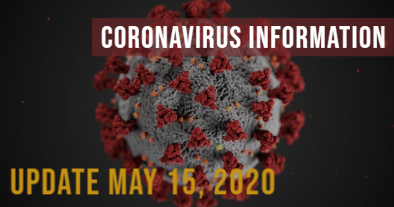News Item
State Courts Enter Transition Phase to Allow for Limited Further Reopening
Posted: Friday, May 15, 2020

Virtual Hearings to Continue, Preparedness Plan and Transitional Case Strategies to be Implemented Beginning May 18, and Jury Trial Pilots May Begin June 1
Minnesota Supreme Court Chief Justice Lorie S. Gildea has issued an
order in response to Governor Tim Walz’s recent decision to permit the stay-at-home directive to expire and to permit certain activities when Minnesota Department of Health (MDH) guidance may be followed. The order includes details of the planned, methodical, and gradual approach to increasing the number and type of in-person proceedings held in court facilities. This process will be consistent with guidance from MDH to limit the spread of COVID-19 and ensure the safety of court interactions.
“Based on guidance from state and local health officials, judicial officers and staff and our justice partners have worked together to develop the detailed Preparedness Plan and Transitional Case Strategies in order to be ready for the gradual further reopening of court facilities.” said Chief Justice Gildea. “True access to justice means people in our courthouses are safe and feel safe. When people return to our courthouses they will see new signage, physical barriers, staff and judicial officers wearing face coverings, frequent sanitization, and many other new protocols set up to reduce the spread of COVID-19.”
Below is a summary of the order; for full details see the
order.
Preparedness Plan & Transitional Case Strategies
Courts are expected to meet conditions established by the Judicial Council-approved
Minnesota Judicial Branch COVID-19 Preparedness Plan. The Preparedness Plan addresses exposure control measures and specific recommendations courts will follow in order to begin further in-person courthouse activities. The Preparedness Plan addresses expectations for:
- Social Distancing
- Face Coverings
- Cleaning and Disinfecting the Work Environment
- Partitions and Barriers
- Non-Public Facing Staff
- Public Facing Staff
- Courtrooms
- Handling Mail and Hand-Delivered Documents
- Purchases for Ongoing Operations
Once courts have ensured they are in compliance with the Preparedness Plan, they will implement Transitional Case Strategies for
Civil,
Criminal,
Juvenile, and
Probate case types, which detail the strategies for resuming more in-person courthouse activity for litigants and employees.
Any hearing or case type not covered by the Transitional Case Strategies will continue to be held using virtual, remote technology. Beginning May 18, 2020, judges and employees may return to their offices to work at the court or other Judicial Branch facility on a gradual basis, to support in-person, remote, and other work as provided in the Transitional Case Strategies and consistent with the Preparedness Plan.
Litigants and attorneys required to participate in remote hearings, and interested members of the public who wish to listen to or view public hearings, can find information about remote hearings and the associated technology at
mncourts.gov/remote-hearings.
Jury Trial Pilots
Executive Order No. 20-56 exempted the Minnesota Judicial Branch from the limits on gatherings. As such, the Chief Justice’s order addresses the process for limited resumption of criminal jury trials.
Beginning June 1, 2020, a limited number of pilot jury trials are permitted to begin as outlined in the Criminal Transitional Case Strategies guide. Before being approved to start trials, pilot locations must develop a plan and complete a Jury Trial Pilot Checklist in order to address changes to facilities and protocols to meet social distancing and safety needs. Other than the pilots, no other jury trials shall be held in criminal cases before July 6, 2020, and no jury trials shall be held in civil cases before September 1, 2020.
Additional guidance will be posted on the jury webpage,
mncourts.gov/jurors, and distributed with paper summons.
Public & Media Access
In-person public service counter support will be limited to those who are at the facility to attend an in-person proceeding. All other services, including self-help services, will continue to be available only by
phone or email. The Minnesota Judicial Branch has many
online tools for litigants. Public access terminals (courthouse terminals) or non-courtroom spaces in courthouses remain unavailable for the public and media.
The order continues the current processes in place for media to be allowed access to hearings. Media who wish to cover a hearing must work with the
State Court Information Office or the Hennepin County District Court Communications Specialist. Media must provide 24-hours advance notice of a request to attend a hearing, and will be required to follow all social distancing protocols enforced by court administration and judicial officers. A presiding judge may require media representatives to attend remotely, rather than in the courtroom, in order to maintain compliance with the Preparedness Plan. Where multiple requests exist, media may be required to coordinate a pool. Media may work with the Court Information Office to request documents.